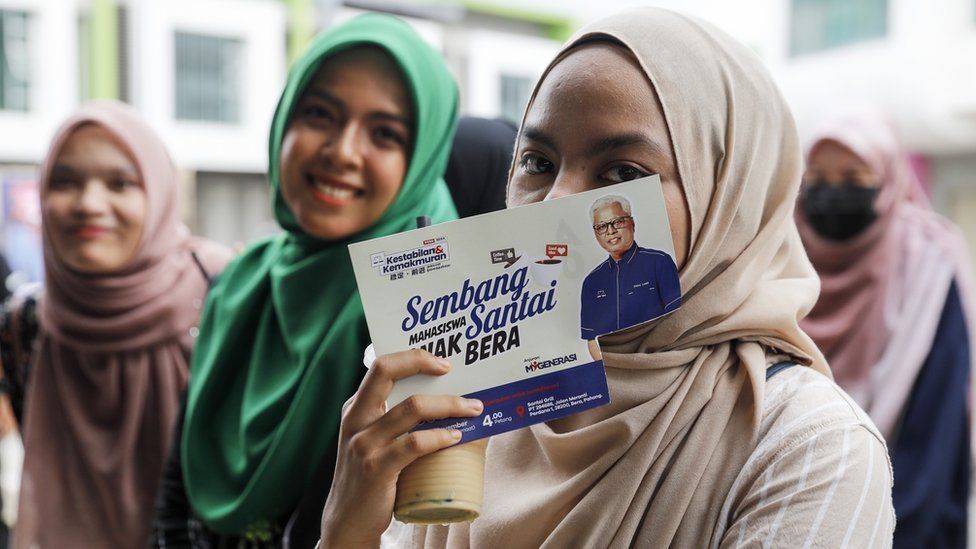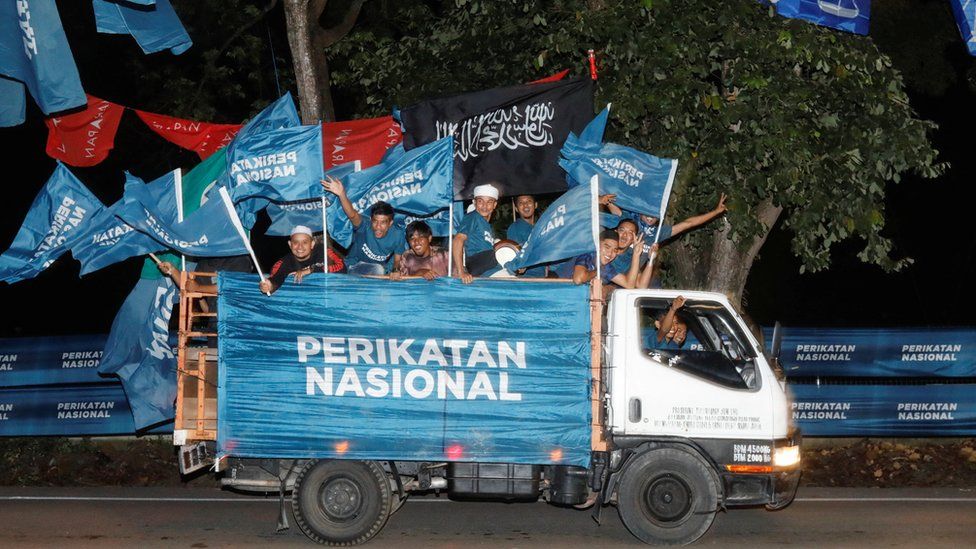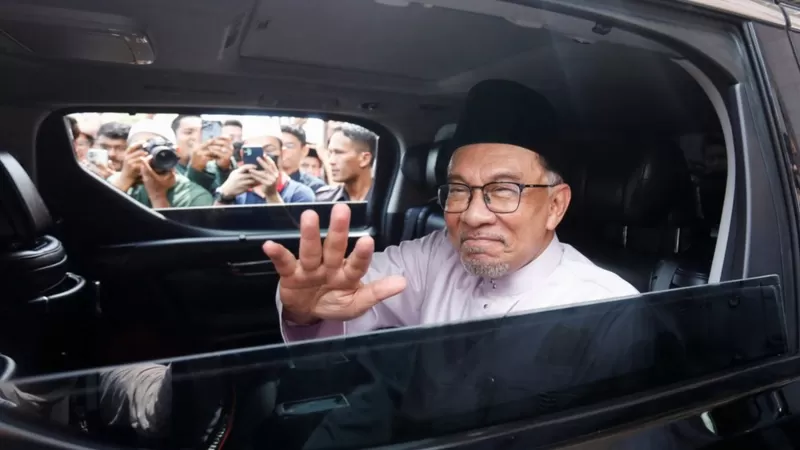l
The honeymoon – if there even is one – will be brutally short.
Anwar Ibrahim became Malaysia’s 10th prime minister last week, after an epic career in which he had sought the job, and come close to getting it, over a quarter of a century. But whatever jubilation he might have felt must have been tempered by the daunting task now confronting him.
The 75-year-old is a skilled orator with extensive political experience and personal charisma, but he has, in the past, also shown lapses of judgement. He must now muster all his strengths to fix the economy, satisfy long-suppressed demand for reform, ease racial mistrust and keep an unwieldy coalition together.
His reformist, multi-ethnic Pakatan Harapan (PH) coalition won 82 parliamentary seats in last month’s election – more than any other political bloc, but well short of the 112 needed to form a government. Malaysia had its first hung parliament.
It then took five days of intense haggling among the different blocs for King Abdullah to choose Mr Anwar to lead the government. This was only possible because his old nemesis, UMNO, the party whose 61-year monopoly on power had been challenged and eventually ended by Mr Anwar and his allies in 2018, agreed to partner with him. But it’s an arrangement that leaves many in both UMNO and PH uneasy.
Mr Anwar’s first problem has been allocating cabinet posts. UMNO and its allies won only 30 seats in the election. But its price for cooperating with PH was to be given several cabinet posts.
The most controversial is the appointment of Ahmad Zahid, the powerful UMNO president, as one of the two deputy prime ministers. There was strong opposition to the appointment because Mr Zahid faces multiple criminal charges dating back to his time in the discredited administration of former prime minister Najib Razak, who is serving a 12-year prison sentence for corruption.
For its part UMNO has promised to support Mr Anwar in the confidence vote he plans to hold in parliament on 19 December, but said little about how this uncomfortable alliance will work.
ADVERTISEMENT

“At the moment, the collection of parties backing the Anwar administration seems stable,” says Tricia Yeoh, CEO of the independent Malaysian think tank IDEAS. “However, it is a precarious situation where any major faux pas by Anwar could cause dissatisfaction among the UMNO rank-and-file, which may then escalate to the division chiefs, who are the influential power-brokers within the party.”
UMNO’s general assembly in December will be a test, she adds – rising dissatisfaction could lead to an internal party vote to withdraw support for Mr Anwar as PM.
“If Anwar survives till the end of December, events in the coming year may prove to be additional tests, such as UMNO’s party election, expected within the first quarter of 2023, and passing the full 2023 budget,” Ms Yeoh says.
Then there is the economy, still struggling to recover from the Covid pandemic. The first PH administration in 2018 was accused of neglecting bread-and-butter issues like jobs and food prices, instead pushing its political reform agenda. Mr Anwar, however, has already said that his top priority is helping the living standards of ordinary Malaysians.
- Anwar: The man who waited decades to lead Malaysia
- Malaysia election: Why isn’t there a government yet?
The post of finance minister plays a critical role here, and Mr Anwar has decided to take that job himself rather than entrust it to anyone else.
Race, which remains a big factor in multi-ethnic Malaysia’s politics, could perhaps pose the trickiest challenge for Mr Anwar.
Ethnic Malays, who make up just over half the population, enjoy special protection under the constitution. Since the 1970s, successive governments have given them privileged access to jobs, business opportunities and education. UMNO’s main policy since its founding in the 1940s has been to protect that status.
That mantle has now passed to Perikatan Nasional, an alliance comprising PAS, a conservative, Islamist party, and Bersatu, a Malay-based party of politicians who broke away from UMNO. PN, which won 73 seats, refused the king’s request that it join a broad national unity government led by Mr Anwar.

For more than 20 years, Mr Anwar’s own Keadilan party has tried to persuade Malays to back its vision of a reformist, multi-racial and multi-cultural Malaysia – but with limited success.
In this election it lost seats, dropping from 48 to 31. Mr Anwar’s daughter Nurul Izzah, an MP since 2008, lost a seat the family has held for nearly 40 years to a rival from PAS. Keadilan is now a smaller component of PH than the mainly ethnic Chinese Democratic Action Party, which won 40 seats. This makes the new government vulnerable to the charge that it is dominated by ethnic Chinese interests, and all the more dependent on UMNO to show that Malay interests are sufficiently represented.
One of Mr Anwar’s long-running goals has been to slim down Malaysia’s bloated state-owned enterprises and reduce the risk of corruption. But doing that will open him to accusations that he is attacking the very sector which in the past has given Malays more opportunities.
Leading politicians in Perikatan Nasional have a track record of fanning the flames of racial resentment. Bersatu leader and former PM Muhyiddin Yassin was caught on camera ahead of the polls claiming that PH was sponsoring a campaign by Jews and Christians to “Christianise” Malaysia. PAS leaders have accused PH of Islamophobia, of being backed by Israel, and suggested those who vote for them would go to hell.
“The primary danger to Anwar is a PN that chooses to be an opposition on the grounds of race and religion, and not on the grounds of policy,” Ms Yeoh says.
“That they have chosen to be the main defender of Malay and Muslim interests means they will likely attempt to destabilise Anwar’s government precisely on those issues. If this continues, the rhetoric used by PN during the campaign period will not cease, but instead intensify, which will provide dangerous, fertile soil in which the seeds of further ethnic polarisation can grow.”
